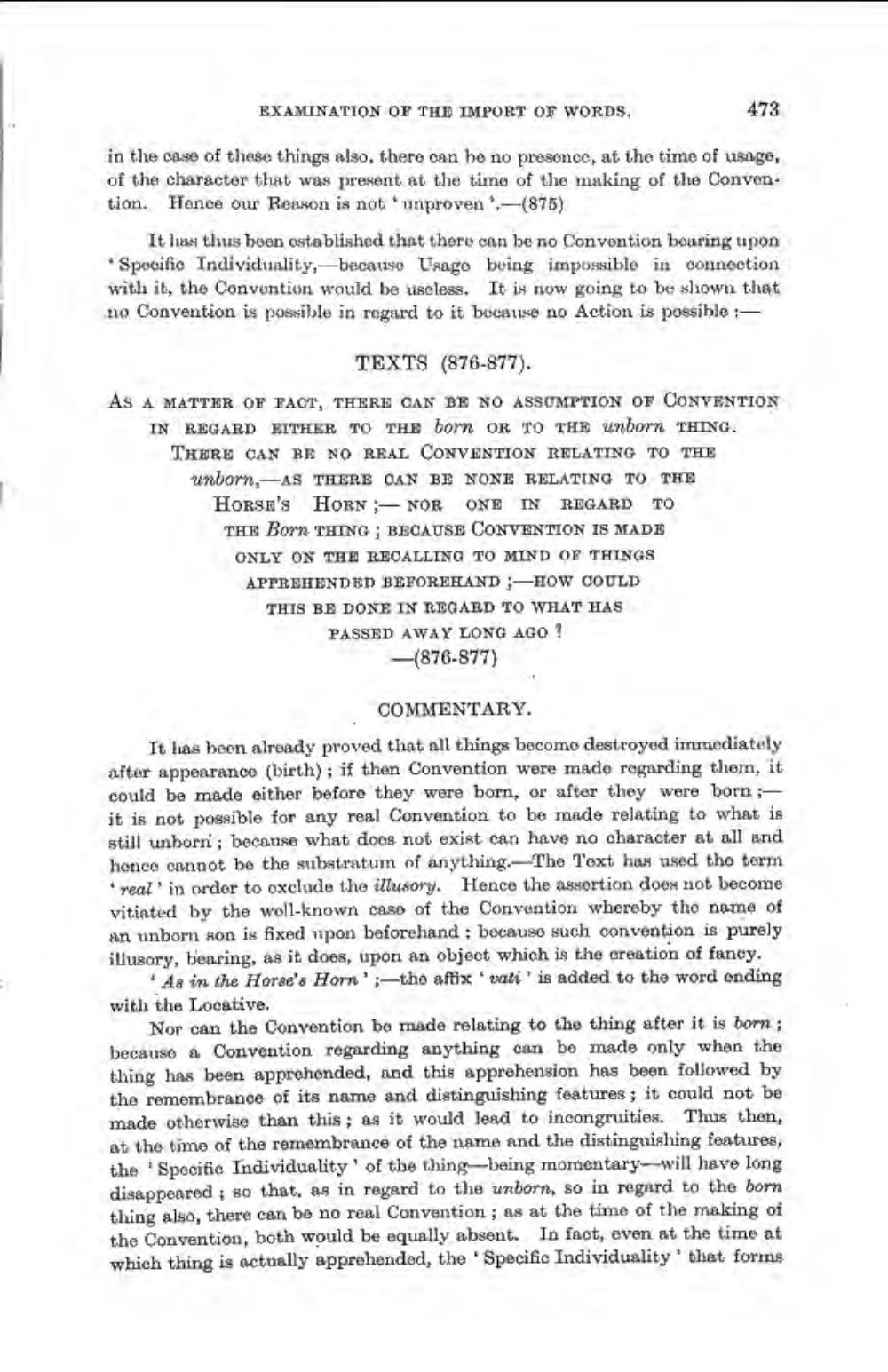________________
EXAMINATION OF THE IMPORT OF WORDS,
473
in the case of these things also, there can ho no presence, at the time of usage, of the character that was present at the time of the making of the Conven. tion. Hence our Reason is not unproven (875)
It is thus been established that there can be no Convention bearing upon Specific Individuality, because Usago being impossible in connection with it, the Convention would be useless. It is now going to be shown that no Convention is possible in regard to it because no Action is possible :
TEXTS (876-877).
AS A MATTER OF FACT, THERE CAN BE NO ASSUMPTION OF CONVENTION
IN REGARD EITHER TO THE born OR TO THR unborn THING. THERE CAN BE NO REAL CONVENTION RELATING TO THE unborn,-AS THERE CAN BE NONE RELATING TO THE HORSH'S HORN-NOR ONE IN REGARD TO THE Born THING; BECAUSE CONVENTION IS MADE ONLY ON THE RECALLING TO MIND OF THINGS APPREHENDED BEFOREHAND HOW COULD THIS BE DONE IN REGARD TO WHAT HAS PASSED AWAY LONG AGO?
-(876-877)
COMMENTARY. It has been already proved that all things becomo destroyed imunediately after appearance (birth); if then Convention were made regarding them, it could be made either before they were born, or after they were born ;it is not possible for any real Convention to be made relating to what is still unborn; because what doos not exist can have no character at all and honce cannot be the substratum of anything. The Toxt has used the term
real' in order to oxclude the illusory. Hence the assertion does not become vitiated by the woll-known case of the Convention whereby the name of An unborn son is fixed npon beforehand : because such convention is purely illusory, bearing, as it does, upon an object which is the creation of fancy.
As in the Horse's Horn';-the aftix 'vati' is added to the word onding with the Locative.
Nor can the Convention be made relating to the thing after it is born ; because & Convention regarding anything can be made only when the thing has been apprehended, and this apprehension has been followed by the remembrance of its name and distinguishing features; it could not be made otherwise than this; as it would lead to incongruities. Thus then, at the time of the remembrance of the name and the distinguishing features, the Specific Individuality of the thing-being momentary-will have long disappeared ; so that, as in regard to the unborn, so in regard to the born thing also, there can be no real Convention ; as at the time of the making of the Convention, both would be equally absent. In fact, even at the time at which thing is actually apprehended, the Specific Individuality that forms




